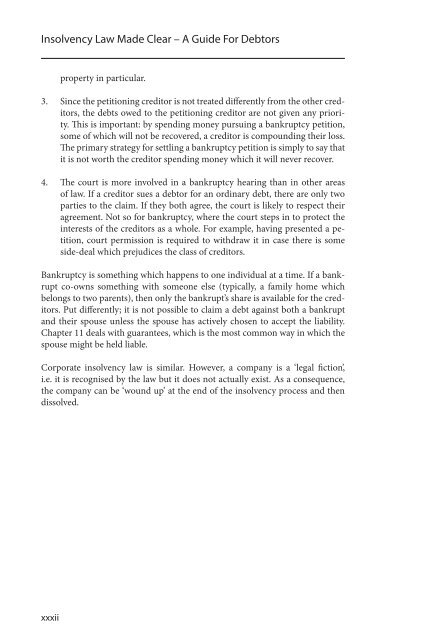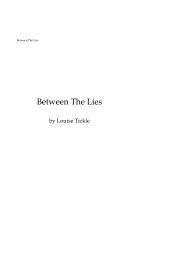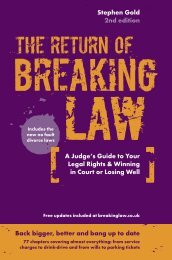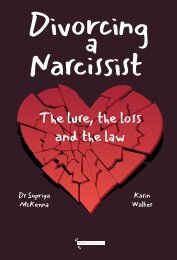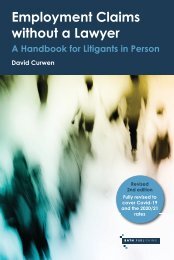Insolvency Made Clear: A Guide for Debtors
Plain English, practical guidance for anyone facing demands over a debt they are struggling to pay.
Plain English, practical guidance for anyone facing demands over a debt they are struggling to pay.
You also want an ePaper? Increase the reach of your titles
YUMPU automatically turns print PDFs into web optimized ePapers that Google loves.
<strong>Insolvency</strong> Law <strong>Made</strong> <strong>Clear</strong> – A <strong>Guide</strong> For <strong>Debtors</strong><br />
property in particular.<br />
3. Since the petitioning creditor is not treated differently from the other creditors,<br />
the debts owed to the petitioning creditor are not given any priority.<br />
This is important: by spending money pursuing a bankruptcy petition,<br />
some of which will not be recovered, a creditor is compounding their loss.<br />
The primary strategy <strong>for</strong> settling a bankruptcy petition is simply to say that<br />
it is not worth the creditor spending money which it will never recover.<br />
4. The court is more involved in a bankruptcy hearing than in other areas<br />
of law. If a creditor sues a debtor <strong>for</strong> an ordinary debt, there are only two<br />
parties to the claim. If they both agree, the court is likely to respect their<br />
agreement. Not so <strong>for</strong> bankruptcy, where the court steps in to protect the<br />
interests of the creditors as a whole. For example, having presented a petition,<br />
court permission is required to withdraw it in case there is some<br />
side-deal which prejudices the class of creditors.<br />
Bankruptcy is something which happens to one individual at a time. If a bankrupt<br />
co-owns something with someone else (typically, a family home which<br />
belongs to two parents), then only the bankrupt’s share is available <strong>for</strong> the creditors.<br />
Put differently; it is not possible to claim a debt against both a bankrupt<br />
and their spouse unless the spouse has actively chosen to accept the liability.<br />
Chapter 11 deals with guarantees, which is the most common way in which the<br />
spouse might be held liable.<br />
Corporate insolvency law is similar. However, a company is a ‘legal fiction’,<br />
i.e. it is recognised by the law but it does not actually exist. As a consequence,<br />
the company can be ‘wound up’ at the end of the insolvency process and then<br />
dissolved.<br />
xxxii


